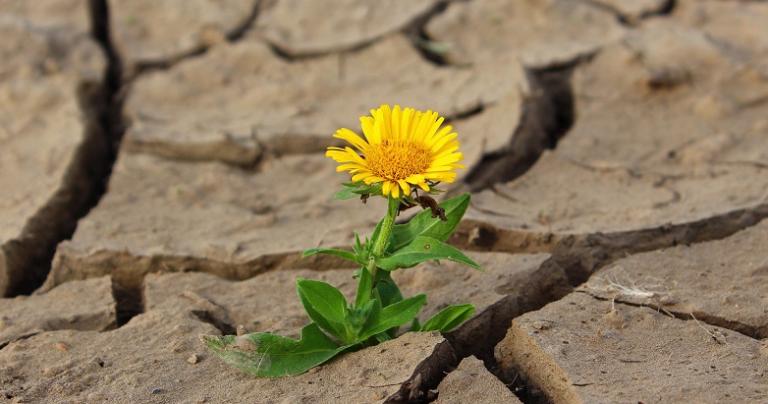Hello, beautiful creatures. Today, I want to talk with you about resistance, and resources, and averting despair.
Right now, my daughter’s voice is lilting down the hall in the day’s thirteenth heartfelt rendition of Barbara Streisand’s “Don’t Rain on My Parade,” and the nation of my birth is being torn apart from within by vandals in suits and jackals carrying flags.
Dinner is in the slow cooker, filling our home with the incredible smell of chicken and mushrooms, thyme and leeks, and the Supreme Court has just ruled in favor of both the bigotry of the present administration’s Muslim travel ban and the misogyny of Christian anti-choice “clinics.”
Today, I am torn between the simple joys of domesticity and a literal existential terror. I fear for my daughter, my partner, my family and friends and community. That’s why, in my previous post, I basically broke down and pleaded with people to do something about the American march into fascism, to be the resistance. Of course, I realize that’s kind of a tall order, which is why I ended that post by promising thoughts about “doing something.”
What follows are those thoughts.
I should be up front, though, that I’m not here to tell you what you should do to resist. I’m not going to provide you with a laundry list of organizations to support, actions to take, ideas to believe. I’ve made a couple of posts in the past suggesting causes and actions, but I don’t know if that’s the best use of either of our time and attention spans in this moment. If you want suggestions for specific things you can do, there are plenty of folks out there who can offer excellent ideas; in fact, I’ve listed three of them just a few paragraphs down from here.
Before we get to them, I want to offer you some counsel which, in all honesty, I have to remind myself to employ on a regular basis. It’s easy to give advice, after all, and much harder to actually follow it yourself. In putting this out there, I’m trying to keep myself honest as much as I’m offering you help. Mutual aid and comfort, eh?
Here, then, are three principles of effective resource management to keep in mind while you’re resisting the rampant catastrophe of the present American administration:
1. Know your reach.
It’s easy to regard the scope of the raging, continent-wide dumpster fire of modern America and feel utterly overwhelmed. The offenses against human rights, human decency, and liberty being committed by the present administration are a nonstop cavalcade of racism, sexism, homophobia, transphobia, Islamophobia, ecological suicide, class warfare, and petty meanness, and just in case we’ve missed anything, we have social media and smartphones to bring us up-to-the-second notifications on any atrocity we’ve missed while we slept.
*wakes up and looks at phone*
ah let's see what fresh horrors await me on the fresh horrors device— Miss O'Kistic (@missokistic) November 11, 2016
Here’s the awful truth: No one person can resolve this calamity. This is going to require a whole lot of work from a whole lot of people, across a whole lot of issues, causes, problems, and situations. You can’t solve all the problems, and that’s okay. You can solve some problems, and that’s what you need to focus on.
Start small, with what’s closest to hand. Start with something you’re passionate about, something that inspires you to work hard for a positive result. Start with something you already have skills doing, or that you can learn quickly.
Maybe that’s donating time phone banking or working at a soup kitchen. Maybe that’s donating money to organizations. Maybe it’s hosting meetings, cooking meals, and running errands for a local organization. Maybe it’s contacting your representatives by email, phone, text, or actual physical letters. Maybe it’s educating yourself so you can confront family members and acquaintances who support the illegal, immoral actions being taken by this regime, or providing support—emotional, physical, financial—for marginalized groups impacted by their policies.
Whatever your aptitudes, talents, skills, or passions, I guarantee you there’s a need and a use for them near you. Look around you, find where that need is, and go to it.
2. Pace yourself.
So, you know that thing where flight attendants tell you that, in the wildly unlikely event of a loss of cabin pressure, you should put on your own oxygen mask before you help anyone else put theirs on? This is similar. Burnout is one of the occupational hazards of the activist, as well as being an environmental hazard of being alive in 2018. If you’re reading this, odds are good you’re already feeling a bit of it.
Here’s the thing: you can’t help anyone if you don’t have any resources to spend, and you do nobody any good, especially yourself, if you’re burnt out and overextended. That means not trying to be superhuman and Do All The Things, and it means not berating yourself for not being superhuman and Doing All The Things. Doing small things well is far more effective than doing big things half-assed.
It also means that taking care of yourself physically, emotionally, and spiritually is more than just a good idea: it’s essential. Eat as healthy as you can, stay hydrated, and ease up on the caffeine and alcohol as ways to cope with fatigue and stress. Give yourself permission to take periodic breaks from the struggle, to enjoy things you love, to spend time in ways that nourish and refresh you. Make offerings to your gods, ancestors, and other spirit allies. and put that meditative practice to good use. Ground, center, and align yourself, within and without. Spend some time between the worlds. The work will still be here when you get back, I promise.
3. Set your boundaries.
At the end of the day, you are the only one who feels what you’re feeling, who knows from the inside what you’re dealing with. That means you’re the one responsible for knowing your limits and abiding by them, and for keeping yourself safe by setting and enforcing boundaries. You have the right and the responsibility to say, “This is what I’m working on, and this is as much as I can do right now.”
That means you get to focus your efforts where you think they’ll do the most good (see #1 above). If someone criticizes that focus, as often happens, you are under no obligation to defend your choices. You’re well within your rights to simply ignore them, or you can deploy my partner’s favorite response: “It sounds like you’re really passionate about that cause! I’m working in another area, but I’d love to hear what you’re doing around that issue.”
That also means you get to pay attention to when you’re approaching burnout, and to take whatever self-care steps you deem appropriate (see #2 above). That might mean a five-minute break, a mental-health day, or a short vacation from social media, depending on your situation and your needs. It might mean reshuffling your obligations, or reevaluating your relationship with the work you’re doing. It might even mean changing the focus of your work, if it comes to that.
What it doesn’t mean—what it cannot mean, if we’re going to get through this—is that you throw up your hands in frustration and fatigue, walk away from everything, and hide your head in a Netflix binge marathon. Believe me, I know it’s tempting, but people’s lives are at stake. I wish that were hyperbole.
There’s a motivational quote I’ve seen floating around social media, a paraphrase of Rabbi Rami Shapiro’s interpretative translation of a Talmudic commentary on Micah 6:8. I’m normally kind of allergic to such things, but as it turns out, this one is actually pretty relevant:
Do not be daunted by the enormity of the world’s grief.
Do justly now. Love mercy now. Walk humbly now.
You are not obligated to complete the work,
but neither are you free to abandon it.

Suggested Reading for Resistance Work
And now, for that inspirational reading I mentioned above. If you’re wondering how to proceed from here, the following essays have some excellent suggestions for next steps:
- As mentioned previously, John Beckett’s “Your Place in the Resistance, Your Place in the Restoration” is a gentle introduction to the idea of resistance, and a marvelous primer on how to do so. If you’re feeling kind of raw, this is a good place to start.
- If you’re up for something more bracing, Sarah Anne Lawless’ “Awake from the Dream to the Nightmare of Reality” is one of the best, most harrowing calls to action I’ve yet read, offering passionate motivation and practical advice in equal measure.
- Hecate Demeter’s ongoing series “The Magical Battle of America” (the first installment of which can be found here, and an index for the first year of which can be found here) provides a fantastic model for what effective magical and mundane resistance work can be.
Sadly, we’re in this for the long haul. Blessedly, we’re in it together, and we’ll get through it together.
Until next time, dear ones, be safe, and be the resistance. ♥














